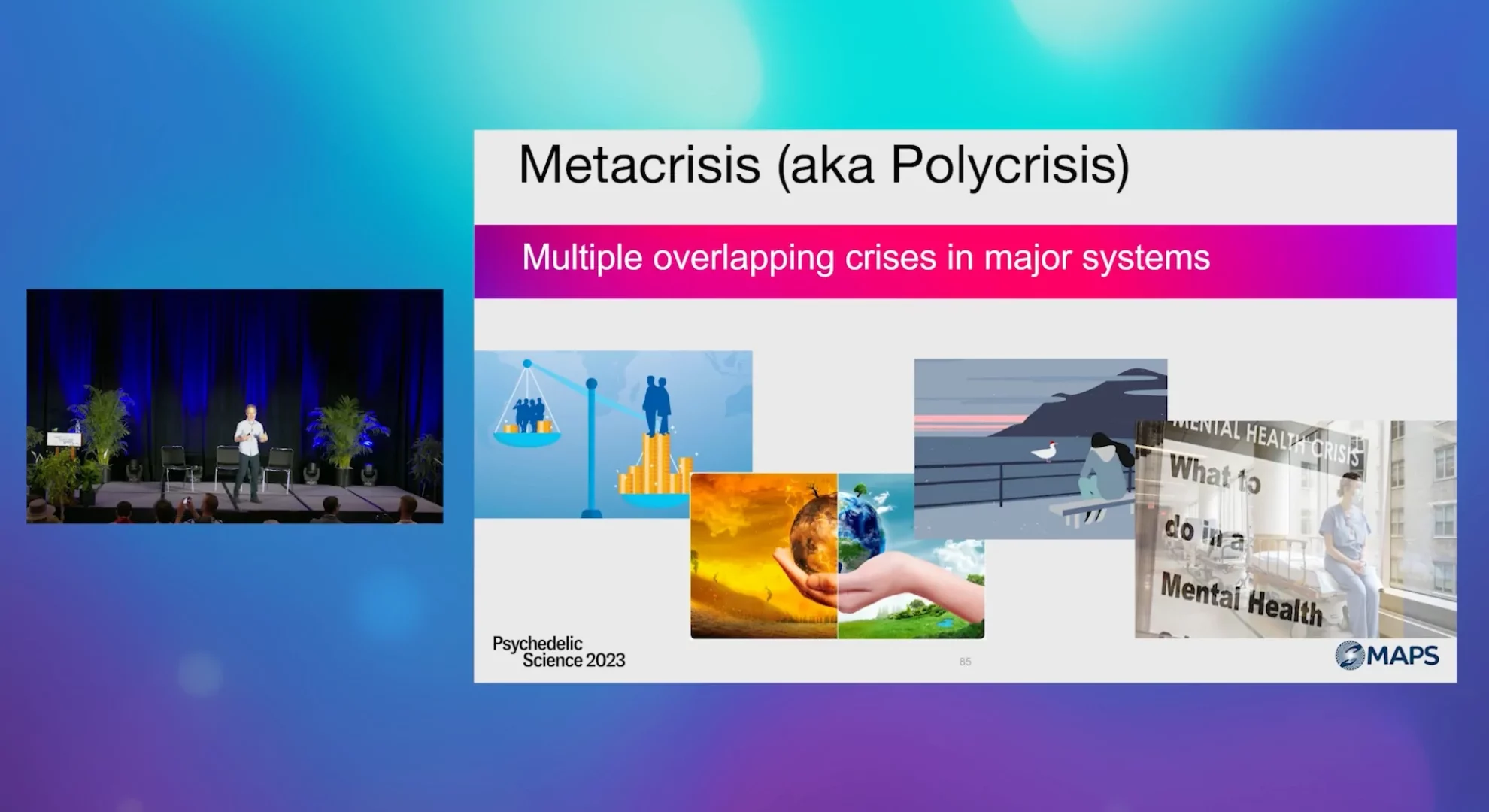
Psychedelics, Leadership, and Systems Change
Humanity faces multiple overlapping crises in all major systems. The so-called metacrisis (or polycrisis) is rooted in the extractive pattern of our economic system and, at a deeper level, the foundational myth of disconnection. The antidote to the extractive pattern is a regenerative economic system, in which resources continually circulate to restore and strengthen the economic, social, and natural systems supporting individual and collective well-being. Transitioning to such a system will require leadership, but the traditional conception of heroic leadership – in which an individual leader directs others toward a specific outcome according to a master plan – is antithetical to the distributed pattern of decision-making intrinsic to a regenerative system, as well as the self-organizing process of emergent change from which such a system might arise.
Professor Rachelle Sampson and I, along with our collaborators, are conducting a research project – the Connected Leadership project – that speaks to this leadership challenge. Can personally transformative experiences rooted in reconnection lead to the professional transformation of organizational leaders? Do psychedelic experiences lead to more “connected” decision-making that takes into account a broader set of stakeholders over a longer time horizon? Can such experiences give rise to another form of leadership – emergent leadership – that catalyzes the collective intelligence of the group to enable deeply collaborative responses to societal problems and challenges?
Share: Psychedelics, Leadership, and Systems Change
Facebook
Twitter
LinkedIn
Email




